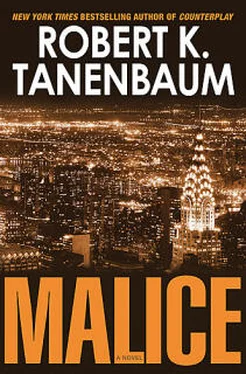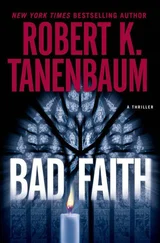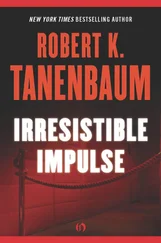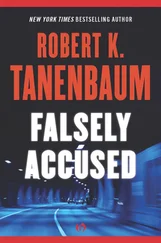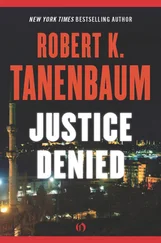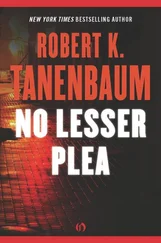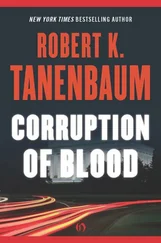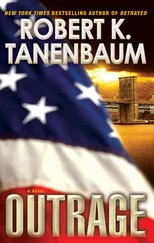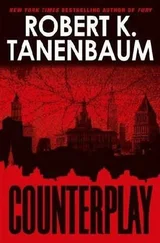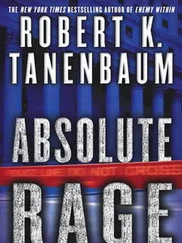Robert Tanenbaum - Malice
Здесь есть возможность читать онлайн «Robert Tanenbaum - Malice» весь текст электронной книги совершенно бесплатно (целиком полную версию без сокращений). В некоторых случаях можно слушать аудио, скачать через торрент в формате fb2 и присутствует краткое содержание. Жанр: Криминальный детектив, на английском языке. Описание произведения, (предисловие) а так же отзывы посетителей доступны на портале библиотеки ЛибКат.
- Название:Malice
- Автор:
- Жанр:
- Год:неизвестен
- ISBN:нет данных
- Рейтинг книги:4 / 5. Голосов: 1
-
Избранное:Добавить в избранное
- Отзывы:
-
Ваша оценка:
- 80
- 1
- 2
- 3
- 4
- 5
Malice: краткое содержание, описание и аннотация
Предлагаем к чтению аннотацию, описание, краткое содержание или предисловие (зависит от того, что написал сам автор книги «Malice»). Если вы не нашли необходимую информацию о книге — напишите в комментариях, мы постараемся отыскать её.
Malice — читать онлайн бесплатно полную книгу (весь текст) целиком
Ниже представлен текст книги, разбитый по страницам. Система сохранения места последней прочитанной страницы, позволяет с удобством читать онлайн бесплатно книгу «Malice», без необходимости каждый раз заново искать на чём Вы остановились. Поставьте закладку, и сможете в любой момент перейти на страницу, на которой закончили чтение.
Интервал:
Закладка:
Dyer's statement was hearsay; in fact, it was hearsay several times removed from the source, if there was one. And even if the "gentleman" existed and had made the statement, there was no evidence that the conspiracy existed anywhere but in the man's mind. But the testimony was allowed anyway.
Hour after hour passed in the courtroom, and it became increasingly apparent that Coke could not win the case with his evidence. So he resorted to name-calling and insults, which he repeated over and over again, as if repetition gave weight to his words. Raleigh, he said, was the "absolutest traitor that ever was" and "the notoriest traitor that ever came to the bar. Thyself art a spider of Hell."
But Raleigh remained cool. "You speak indiscreetly, barbarously, and uncivilly."
"I want words sufficient to express thy viperous treasons," Coke shouted.
"I think you want words indeed," Raleigh countered quietly, "for you have spoken one thing half a dozen times."
It was well into the night when the trial drew to a close with both men trying to get the last word in. Raleigh insisted that it was his right. "He which speaketh for his life must speak last."
When the judges agreed, having perhaps been shamed by Raleigh's spirited defense, Coke sat down and refused to give his closing argument. The judges finally prevailed upon him to finish, which he did by reading a third letter that he'd forced Cobham to sign, which rescinded the retraction letter sent via apple to Raleigh.
Finished, Coke sat down again, at which point Raleigh stood and with the flourish of the old courtier produced his own letter from Cobham. He prevailed upon Lord Cecil to read it:
"'Seeing myself so near the end, for the dire charge of my own conscience, and freeing myself from your blood, which else will carry vengeance against me; I will protest upon my salvation I never practiced with Spain for your procurement; God so comfort me that this is my affliction, as you are a true subject for anything that I know… God have mercy upon my soul, as I know no treason by you.'"
After the letter was read, Raleigh argued that the prosecution had not proved its case, despite the disadvantages he'd had defending himself.
"Consider my disability, and their ability; they prove nothing against me. Only they bring the accusation of my Lord Cobham, which he hath lamented and repented as heartily as if it had been for a horrible murder-for he knew that all this sorrow which should come to me is by his means. Presumption must proceed from precedent or subsequent facts."
Noting that without him his wife and son would be penniless, Raleigh asked the judges and jurors to put themselves in his shoes before convicting him based on the scant evidence presented by the prosecutor.
"If you would be contented on presumptions to deliver up to be slaughtered, to have your wives and children turned into the streets to beg their bread; if you would be contented to be so judged, judge so of me," Raleigh said, and sat down.
It was a valiant battle, but of little use. The trial had lasted for sixteen hours-from 8:00 a.m. to midnight-but it took the jury only fifteen minutes to reach a verdict of guilty. Lord Cecil then pronounced the sentence: death "in the full magnitude and horror" the law then required, which meant he was to be hanged, drawn, and quartered.
However, Raleigh's spirited defense had one unforeseen impact. Though his perceived role in the death of Lord Essex had made him an unpopular character among the general public, the obvious injustice of his trial and the noble manner in which he'd conducted himself now made him a national hero.
King James and his councillors recognized that executing him at this point might cause a general uprising worse than any treason Raleigh had been accused of. In fact, the King conceded that "by his wit, he turned the hatred of men into compassion for him." The king decided to grant Raleigh a stay of execution.
For the next thirteen years, Raleigh remained a prisoner in the Tower of London. He was legally dead but was able to write and even have his family around him. Then in 1617, in an effort to gain his freedom, he proposed a voyage to the New World to find gold. He promised he could do this without attacking the colonies or shipping of Spain, with whom the Catholic King James intended to remain at peace.
However, once in the New World, Raleigh's men attacked a Spanish community while he was laid up in bed. There were two major consequences for the action. One was that Raleigh's son was killed in the fight; the second was that Raleigh knew that his own life might be forfeited. But he sailed back to England and, as expected, was arrested.
King James received a letter from the king of Spain saying that Raleigh would not-if the occasion arose-be executed in Madrid. However, the letter added, should he be beheaded in England, it would "please his most Catholic Majesty."
As attorney general, Coke was asked to render an opinion on what could be done with Raleigh. It was a chance for revenge against the man who'd made a fool of him in the courtroom, and he took full advantage, noting that Raleigh was already "civilly dead," and therefore his execution had merely been postponed.
On October 28, 1618, Raleigh was taken from the Tower of London to Westminster Abbey, where after another quick show trial he was placed in the gatehouse to await his death. He spent most of his last night in the company of his beloved Bess and writing his final letters.
On the morning of his execution, Raleigh ate breakfast and smoked a little of the tobacco he'd made popular in England. He then dressed magnificently, the dashing courtier one last time as he was led from his cell.
The Old Palace Yard was packed with spectators, many of whom jeered as he climbed the scaffold. There he gave one last eloquent speech that ended, "So I take my leave of you all, making my peace with God." He then removed his cloak and doublet before asking the executioner to show him the ax. "This is sharp medicine," he said approvingly, "that will cure all my ills…"
With that, Raleigh refused the blindfold and laid his head on the block. Composing himself, he gave the signal that he was ready. The executioner, however, hesitated. Then Raleigh gave one final command. "Strike, man! Strike!"
The executioner followed his orders and Raleigh's head was shown to the crowd. They had fallen silent, but then one man spoke up.
"We have not such another head to be cut off."
1
Butch Karp wasn't sure what it was that woke him. He'd been dreaming of murdered schoolchildren and gun-toting terrorists. But it was something else that pulled him from sleep, something to do with unfinished business.
Disoriented, he lay quietly trying to remember where he was. It wasn't at home where he belonged-in bed with his wife in their Lower Manhattan loft. That's for damn sure, he thought, fighting off a small surge of apprehension.
As a prosecutor for the New York District Attorney's Office, and as the district attorney for the past couple of years, he had a reputation among friends and opponents for his ability to concentrate on "what really mattered" to the exclusion of all else. It made him a formidable adversary in the criminal courts where in a nearly thirty-year career he'd lost only one homicide trial. But for that loss, Karp tried successfully a who's who of major league evildoers: assassins, career criminals, contract killers, and your classic Gotham homicidal sociopaths. Now he called upon that famous focus to clear the cobwebs.
Breathing deep, he let the anxiety subside and thought, Okay, you're in Beth Israel hospital. You were shot… What month is this?…Mid-October? Time they let me out of this place.
Karp looked around the room. Or at least tried. Except for a diffused glow from beneath the door, there was little illumination beyond the small green blips that stared out from the machines next to his bed like the eyes of lizards caught in a flashlight beam. All he could see were shadows within shadows, and there was nothing there to cause alarm or disturb his sleep.
Читать дальшеИнтервал:
Закладка:
Похожие книги на «Malice»
Представляем Вашему вниманию похожие книги на «Malice» списком для выбора. Мы отобрали схожую по названию и смыслу литературу в надежде предоставить читателям больше вариантов отыскать новые, интересные, ещё непрочитанные произведения.
Обсуждение, отзывы о книге «Malice» и просто собственные мнения читателей. Оставьте ваши комментарии, напишите, что Вы думаете о произведении, его смысле или главных героях. Укажите что конкретно понравилось, а что нет, и почему Вы так считаете.
